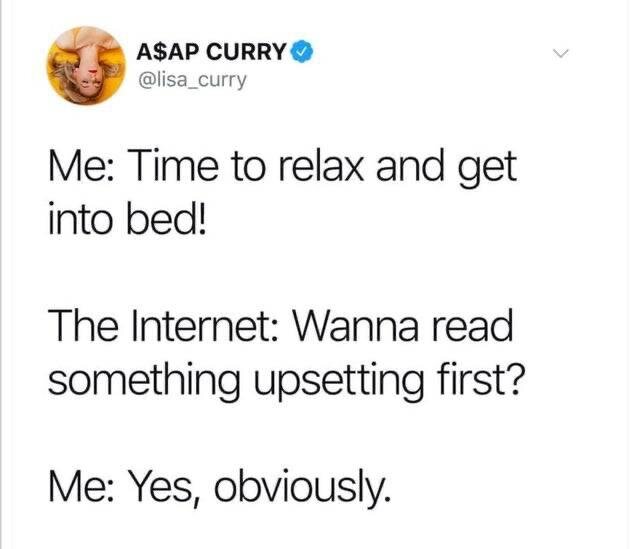A Glass of Stress: How Having Language To Describe Your Stress Will Help You Manage It
Learn how having language to describe your stress level is a powerful way to notice, clarify, communicate and manage it in healthy ways.

Stress! It’s a normal part of life but will get out of control if not managed. It’s easy to get caught up in the internal and external demands of life without really taking the time to analyze how you are feeling and why. Having the language to talk about your stress can be a powerful way to both clarify it in your own mind, as well as communicate about it. Something that helps me manage my stress is having a metaphor to describe it. The visual of the metaphor gives me some space from my stress and a way to notice it so I can respond to it before it gets out of hand.
My metaphor for stress: a glass of water
My metaphor is a plain ol’ glass of water: I am the glass, the water is made up of stressors.
My water level goes up and down in response to whatever my day throws at me. Sometimes the variance is a lot, sometimes only a little. When things are particularly challenging, or (the more likely scenario) when I am not taking good care of myself, the water level keeps rising and it is harder to get it to go back down. When the water reaches the top of the glass... it overflows!
Sometimes it is a single drop that pushes it over the edge. That moment when I burst into tears because I can’t find my keys. Sometimes it is a downpour. Like, say... a pandemic.
Regardless, when my glass overflows, I tend to physically and mentally break down. Symptoms I feel when my glass is overflowing include:

- Tears at the drop of a hat. The cat barfed on the bed, you say? Waterworks.
- I can’t concentrate, think clearly, and it’s hard to make even the most mundane decisions. 40 minutes of scrolling through Netflix only to not watch anything because I can’t make a decision...sounds about right.
- Everything takes longer and things that are normally easy to handle feel so much harder. It’s like wading through molasses. Rewriting a 3 sentence email 6 times and then sending the original version...check.
- I don’t have any energy and it’s hard to stay motivated, even doing things I usually enjoy. Writing this blog...sounds terrible.
I have physical symptoms too:
- My back and neck are a mess of tight muscles.
- I have daily anxiety where my chest is tight and I feel like I can’t take a full breath.
- If I really go for it (it being pushing myself well beyond my available resources), I get a migraine for 3 days.
All of these symptoms are my mind and body telling me, in no uncertain terms, that I need to dial things back a few (or many) notches. Some of these might sound familiar in some form or another. Until I can empty some of that water from my glass, I am not much use to anyone.
The metaphor doesn't matter
My glass of water metaphor might not feel right for you. Maybe you imagine:
- a candle slowly burning down until it is extinguished
- a balloon filling with air until it pops
- a ship with slow leaks that need to be patched before it sinks
The metaphor itself doesn’t matter. What matters is that you have a way to describe how you are feeling and being able to notice when things are getting bad.
Think about how you are feeling right now. What words would you use? What metaphor would help you talk about it?
Once you have some language to talk about it, when then?
How you can notice changes in your stress levels
An overflow doesn’t happen suddenly. It is a buildup of small drips (and sometimes the odd deluge) over time, and the stressors themselves could be anything. Things like:
- the car ‘check oil’ light coming on
- an angry email from a customer
- getting laid off
- being sick
- running out of an ingredient for dinner
- stubbing a toe
- your kid not putting on their shoes for any amount of begging or bribery
- a fight with your partner
The possibilities are endless. They don’t even have to be bad things!
- getting a promotion,
- moving into a new home
- adopting a pet
- trying to learn a new skill
… these are all good stressors, but they are still stressors.
The key to preventing the glass of stress from overflowing is to pay attention to the water levels. You need to notice when the levels are increasing, when they are getting too high, and to do something BEFORE they overflow.

Daily reflection to observe stress levels
One of the ways you can get better at noticing is through a daily reflection practice. There are many ways to approach daily reflection and there is no right or wrong way, rather just taking a few minutes each day to look back. One of the simplest ways is to ask yourself:
- What went well?
- What was tricky?
- What would I do differently?
I do this every night before bed. I fill mine out in a spreadsheet, but a small notebook or in an app on your phone works just as well.
I have added in a few other things, including:
- What am I grateful for today?
- What were my mood and energy levels?
- Did I sleep well the night before?
By taking time to look back on your day, you are able to appreciate things you might have let pass without notice, and also acknowledge things that might have impacted your water level:
- Did you have a stressful phone call with your sister?
- Did you have an interesting conversation with your partner over dinner?
- Have you been sleeping poorly all week?
- Did you have too many back-to-back meetings?
- Did you go for a nice walk with your dog?
All these events are worth paying attention to. By identifying the wins and things that made you feel good, the things you know lower your water levels, you know what to do again when things are getting rough.
Noticing the hard or frustrating things allows you to see patterns and make small changes around things that are tricky.
Words about stress matter
Pay attention to the words you use to describe your day or how you are feeling:
- How often are you using the same words?
- Are they negative or positive?
- Do you see any patterns around when you use certain words?
It’s like gathering data on what makes you tick so you can make healthy decisions for yourself.
How you can reduce your stress levels
Noticing is the first step, taking responsibility and action is the second. How often do you say some variation of: “I’m so tired”? How often do you listen, think about why, and do something about it?
Part of paying attention is realizing that you have much more agency over your life than you think. It’s easy to let life happen to you. It’s harder to take time to think about how you respond to things outside your control and how your decisions impact you.

There is no doubt that the things you don’t have control over can have a significant impact (**cough**pandemic**cough). I don’t know about you but my water level has been kinda high for a while, and I suspect it will be for a long time.
But! There are plenty of things you do have control over, and those are the things you have to take responsibility for.
You have control over how you treat yourself and how you take care of your body and mind.
Be kind to your body
The trifecta of diet, sleep, and exercise is one that you know you should pay attention to...but maybe don’t as well as you could. Everyone is different and there are a million different decisions about what is right for you, but the most important one is to choose to be kind to your body. Think of how you feel when you are.
Rest, movement and good nutrition (not necessarily at the exclusion of treats) make a huge difference in how you feel. How are you fitting some variation of each of those into your life? Are you at all?
These are some things to consider:
1. Rest:
- Go to bed and wake up around the same time every day (even on the weekends!). This gets your body in a rhythm and it will start to know when it is bedtime and when it is time to wake up. No alarm necessary.
- Create a consistent bedtime routine. This signals to your body that you are winding down.
- No (or at least less) screen time for the last half hour before bed. Less flashlights in your eyeballs helps you fall asleep faster...who knew?
- If you are working from home, a brief lie down in the afternoon lull. Close your eyes and take 10-15 minutes away from your desk and computer to recharge.
- A minute of deep breathing a few times a day to clear your mind.
I need a lot of sleep to feel good so I do all of these things and they make a big difference in contributing to me feeling well-rested.
2. Movement:
- Get up from your desk once an hour to stretch your legs.
- Go for a walk around your neighbourhood if the weather is nice.
- 20 minutes of yoga at lunch or after work.
- A bike ride with the kids after dinner.
I do 30-45 minutes of some kind of fitness every day, including weekends. My watch also buzzes at me once an hour if I have been sitting for too long and reminds me to get up and get a glass of water or stretch.
3. Nutrition:
- Order your groceries online. It’s harder to impulse buy.
- Meal plan. When you don’t have a lot of time at lunch or you are exhausted at the end of the workday it can be hard to throw together healthy meals so this makes a big difference.
- Have easy healthy snacks available to either take to work or nab from the pantry mid-afternoon. Pre-packaged nuts and easy-to-grab fruit/veggies.
Meal planning is big in my house. We cook a big meal Sunday night and have leftovers for 3 or 4 days. Weekday lunches are a huge salad with most everything pre-chopped and ready to be tossed together. We also have takeout on Friday nights and pancakes Saturday mornings as part of our food routines. The value for me is reducing the likelihood of the, “what do you want for dinner conversation”, at a point in my day where I have hit peak decision fatigue and there is a high chance (like 100%) I will choose cheese and crackers.
Small, intentional decisions about these habits have a big impact on how you feel and on helping to manage your water levels. And they are within your power. Think about your current habits related to rest, movement, and nutrition. Do any of the above sound like something you want to try? If so, start small, pick one, and commit to trying it out for a few weeks and decide if it works for you. If not, try another and repeat.
Be kind to your mind
Similarly, it is possible, with practice, to choose to be kind to your mind. There are an awful lot of dumpster fires burning out there right now. It’s easy to get caught up in the news cycles and the seemingly endless onslaught of bad news. It’s overwhelming, and frankly exhausting.
Beyond the external stresses are the internal ones of our personal and work lives. All the day-to-day things you all carry add up fast. Together, they all combine into a drip, drip, drip of rising water.
To help slow the tide, ask yourself the following questions:
1. When you are already keyed up, what helps calm you down? It could be anything, like:
- Watching a favourite or familiar show
- Getting outside, gardening, walking, running
- Cooking or baking
- Drawing or colouring
- Reaching out to a friend
For me, fitness is actually one of the best ways to clear my mind, manage my anxiety, and lower my water levels. What I like about it is that I have to focus on my body, not the constant chatter of my brain. I am also a pro stress-baker. There have been a lot of cookies ingested over the last year.
2. What can you stop doing that raises your water levels?

- Reading social media and the news (or at least reduce how much you consume)
- Overbooking your calendar with meetings during the week.
- Saying yes to things that you don’t actually want to do.
All three of these are things that I have to constantly come back to. They make a huge difference in my mental health and overall water levels.
3. What can you start doing that lowers your water levels?
- Any of the things listed above. ;)
- Letting yourself have unproductive days without all the guilt. (This is a tough one for me)
- Try to be present in small moments of daily joy like a nice meal with your family or snuggles with your kids or pets.
- Plan unstructured, open time in your day that is just for you. I know this is easier said than done for many people, but it is not impossible.
Again, all of these are things I have to come back to. I am often guilty of measuring my self-worth by my productivity and have to work hard to remember that not every day will be awesome. Similarly, as naturally a future-oriented person I have to work to be present and appreciate the small joys of my day as they happen. My daily reflection helps a lot with this.
Summary
Language is powerful. Having the words to describe how you are feeling through a metaphor gives you a way to clearly communicate about it. Once you can communicate about it, you can be intentional about noticing it. You can be reflective and take action.
Instead of forging ahead, ignoring the ways our bodies and minds are telling us to be kind to them, I encourage you to take some time to reflect, notice, describe and take small actions that help reduce your stress. It takes time and practice but one or any combination of the things listed above will be helpful exercises in paying attention to your water levels and keeping them from overflowing.
Share
Ashley Janssen

Productivity consultant, writer, speaker, serial entrepreneur, chaos calmer, introvert, cat-lady. Lover of books, fitness, old fashioned’s, basketball, and video games.
Follow me on
Twitter
or
LinkedIn.
Hire me for
1 on 1 productivity consulting
or
speaking.
Related articles

What If Being Lazy Was a Good Thing?

How to Winterize Your Life


Comments ()